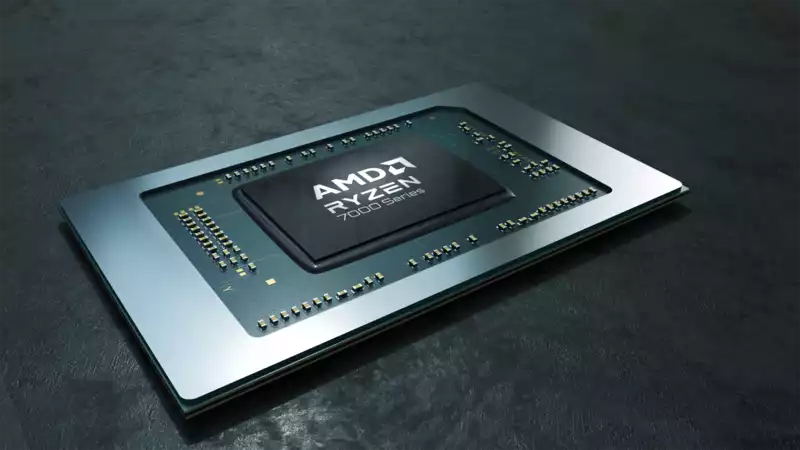We have already told you about AMD's new 16-core mobile monster, the Ryzen 7045 series (opens in new tab). But what is arguably more interesting is AMD's new laptop APUs: the AMD Ryzen 7040 series, also known as the Phoenix APUs, are powered by AMD's brand new and very intriguing "XDNA" AI engine.
The overall naming convention for AMD's new Ryzen 7000 series mobile chips may be a bit confusing, but bear with us as this particular variation is loaded with exciting technology The Ryzen 7040 series is a more direct take on the former AMD Ryzen 6000 mobile chips and is a more direct replacement, a monolithic APU designed specifically for mobile use.
Like the old 6000 series, the new 7040 series has up to eight CPU cores, but this time to Zen 4 specifications; according to AMD, the Phoenix APUs are manufactured at TSMC's 4nm node, while the 7045 series desktop cores are 5nm.
TSMC's 4nm node is closely related to the 5nm node, but has a slight efficiency advantage and is better for battery life; AMD claims up to 30 hours.
In reality, battery life depends on so many disparate factors in laptop design, most of which AMD cannot control. However, 30 hours is still a very bold claim.
As for graphics, this new mobile APU has the same 12 CU graphics core count as the older "Rembrant" APU, but these CUs (compute units) have been upgraded from RDNA 2 to RDNA 3 specifications. So performance should improve a bit, if not expect something dramatic.
Interestingly, despite inheriting the top configuration of 8 CPU cores and 12 graphics CUs, AMD says the new Phoenix mobile APU has 25 billion transistors, about twice as many as the old Rembrant chip.
Part of this increase is due to upgrades to Zen 4 and RDNA, as well as an increase in cache to a total of 20 MB. However, some of the increased transistor budget is also being spent on what may be the most interesting aspect of Phoenix: the first dedicated AI engine in a consumer AMD CPU.
AMD has stated that it is using IP from its acquisition of Xilinx, a specialist in adaptive computing, in early 2022. The end result is what AMD calls XDNA technology, which when implemented in a CPU is called the Ryzen AI engine.
The new AI Engine will support up to four simultaneous AI streams; AMD believes these AI blocks can be used to accelerate a variety of tasks. Perhaps the most notable claim for the Ryzen AI Engine is that it is faster than the Neural Engine in Apple's latest M2 chip. We cannot confirm this at this time, but if true, it would be quite an accomplishment.
As for what this engine can do, one example is live video processing, such as adding portrait blur, simulating eye contact similar to what Nvidia also recently demonstrated, and automatic framing, etc. AMD also claims that the AI block will enhance gaming, and that it can be used to reduce the load on the GPU, and that it can be used to reduce the load on the GPU, can be used to offload the GPU, according to the company.
So far, AMD has not provided specific examples of how XDNA technology can enhance games. However, being the first to include a dedicated AI core in its CPUs, and ahead of Intel, is at least a pretty big PR coup for AMD.
Intel, of course, will argue that its 12th generation Alder Lake and 13th generation Raptor Lake chips, including the Core i9 13900K (open in new tab), include Intel Deep Learning Boost technology designed to accelerate AI workloads They will argue that they have Intel Deep Learning Boost technology designed to accelerate AI workloads. However, this is not a dedicated hardware block, but rather an extension of the vector neural network instructions to AVX512. It won't be until the next-generation Meteor Lake architecture and its VPU (Versatile Processing Unit) later this year that Intel will include actual AI-specific hardware blocks in consumer CPUs.
However, it remains to be seen how much of an impact this will have on gaming.


Comments